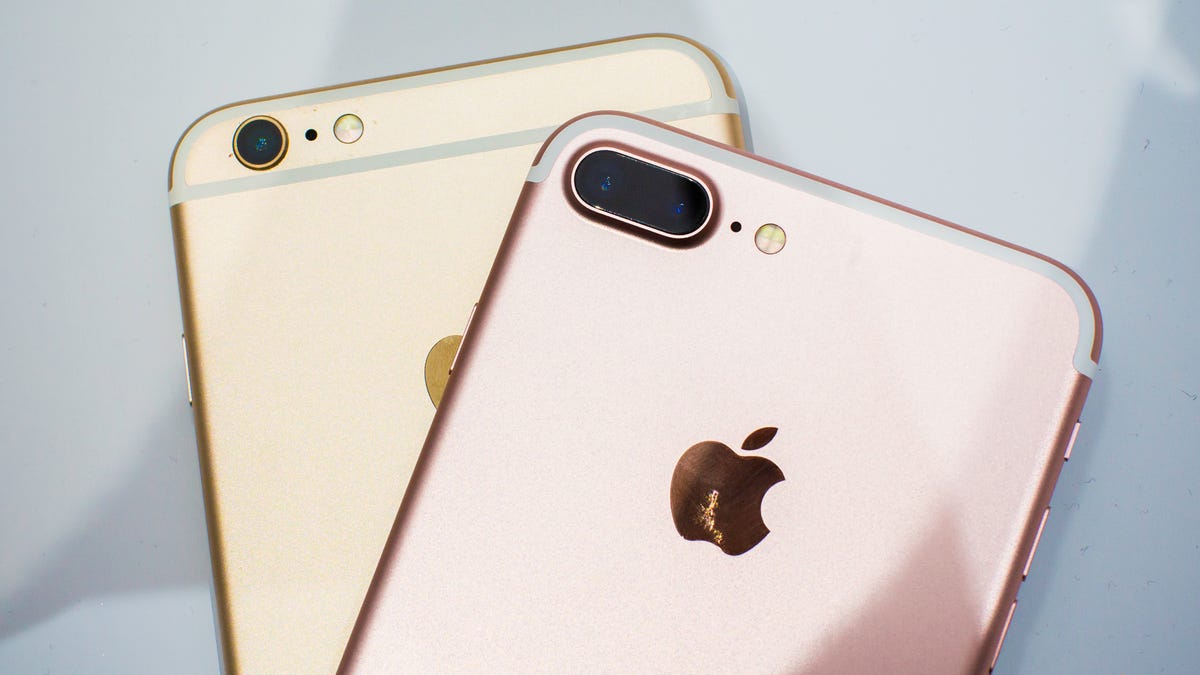Why your AT&T iPhone 7 won't work well on Verizon's network
Versions of Apple's new iPhone 7 geared for AT&T and T-Mobile networks reportedly use an Intel chip -- one that doesn't fully support older Verizon and Sprint network technology.
You won't see an "Intel Inside" sticker on your new iPhone 7 the way you do on Windows laptops, but it appears Apple picked the company to supply an important chip for its newest phone.
Some models of the Apple's iPhone 7 and 7 Plus will use an Intel modem, a critical chip that handles the radio communications linking phones to mobile networks, The Wall Street Journal reported Friday. It's not as important as the central processor, a business Intel pulled back from earlier this year, but it's a prestigious partnership for Intel. And according to Recode it gives Apple more bargaining leverage over Qualcomm, which previously supplied all modem chips.
Such deals may seem like obscure business machinations, but it affects everyone. That's because the Intel modems don't work on an older network technology called CDMA used by Verizon and Sprint. That matters if you're considering switching carriers.
"The iPhone for AT&T and T-Mobile does not support CDMA and will not work on Sprint or Verizon Wireless," Apple warns on its website.
In the longer run, a healthy partnership could help Intel -- now with an expanding foundry business building others' chips -- bring its advanced technology to your pocket by manufacturing iPhone's primary processors, too.
Bloomberg reported Intel's modem deal in June, saying it had replaced chips made by Qualcomm in some phones. Apple and Qualcomm declined to comment for this story. Intel didn't immediately respond to a request for comment.
Intel Chief Executive Brian Krzanich was in the audience at the iPhone 7 launch event.
Apple likes to control important hardware in its products, and indeed it's done well designing its own central processors like the A10 Fusion in the iPhone 7. But modems are a big pain to develop and support, so it's not surprising they let others handle this component.
"Modems are pretty expensive and complicated," said David Kanter, an analyst at Linley Group. In addition, they require complex software and said software stack and tight ties with regulatory agencies around the world for certification, he said. "I have no doubt that Apple could do the software and hardware, but it would require hiring a very large team."


